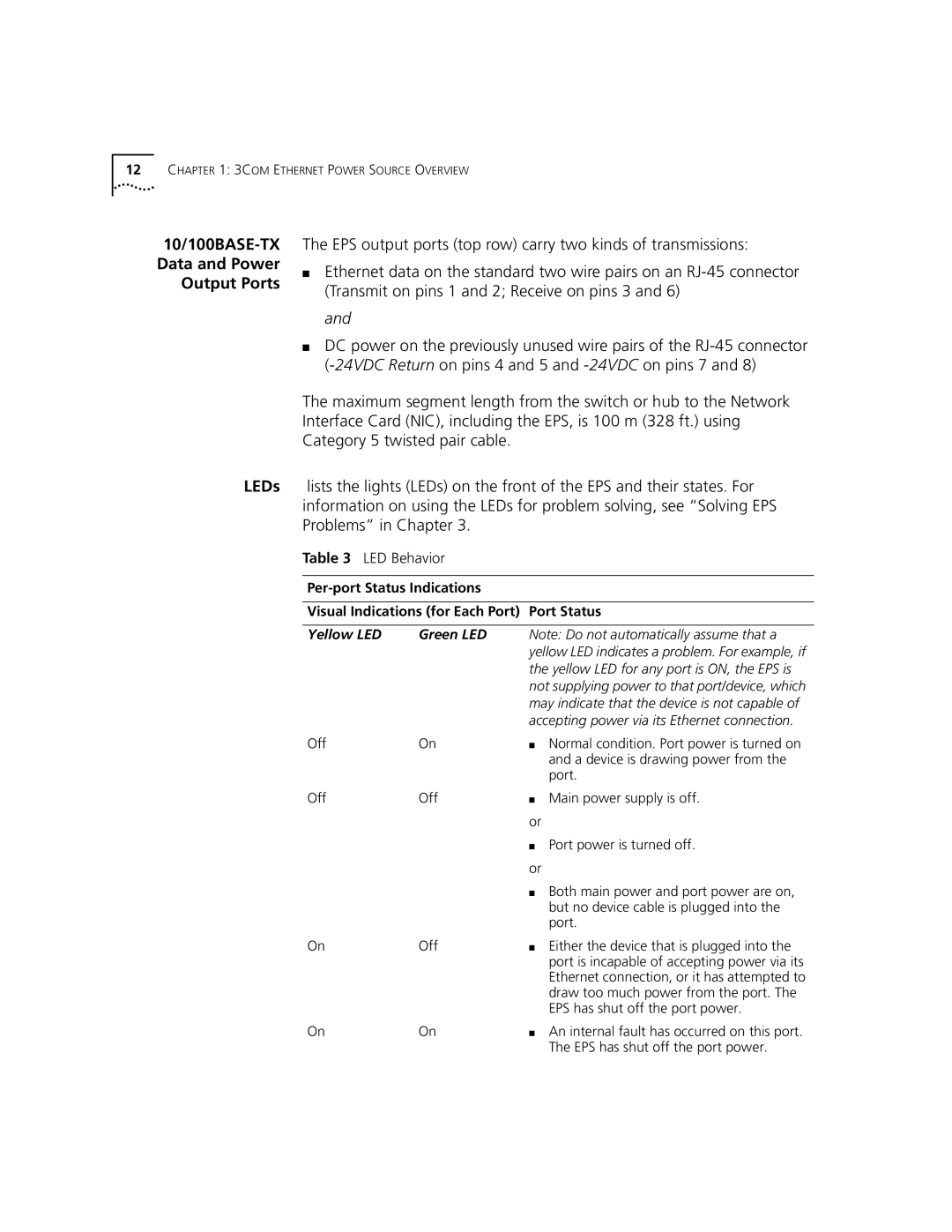
12CHAPTER 1: 3COM ETHERNET POWER SOURCE OVERVIEW
10/100BASE-TX
Data and Power
Output Ports
The EPS output ports (top row) carry two kinds of transmissions:
■Ethernet data on the standard two wire pairs on an
and
■DC power on the previously unused wire pairs of the
The maximum segment length from the switch or hub to the Network Interface Card (NIC), including the EPS, is 100 m (328 ft.) using Category 5 twisted pair cable.
LEDs lists the lights (LEDs) on the front of the EPS and their states. For information on using the LEDs for problem solving, see “Solving EPS Problems” in Chapter 3.
Table 3 LED Behavior
Visual Indications (for Each Port) Port Status
Yellow LED | Green LED | Note: Do not automatically assume that a |
|
| yellow LED indicates a problem. For example, if |
|
| the yellow LED for any port is ON, the EPS is |
|
| not supplying power to that port/device, which |
|
| may indicate that the device is not capable of |
|
| accepting power via its Ethernet connection. |
Off | On | ■ Normal condition. Port power is turned on |
|
| and a device is drawing power from the |
|
| port. |
Off | Off | ■ Main power supply is off. |
|
| or |
|
| ■ Port power is turned off. |
|
| or |
|
| ■ Both main power and port power are on, |
|
| but no device cable is plugged into the |
|
| port. |
On | Off | ■ Either the device that is plugged into the |
|
| port is incapable of accepting power via its |
|
| Ethernet connection, or it has attempted to |
|
| draw too much power from the port. The |
|
| EPS has shut off the port power. |
On | On | ■ An internal fault has occurred on this port. |
|
| The EPS has shut off the port power. |
